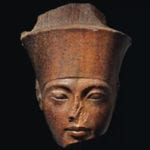 Weird Stuff
Weird Stuff  Weird Stuff
Weird Stuff  Mysteries
Mysteries 10 Tragic Disappearances and Deaths in Joshua Tree National Park
 History
History 10 Ways Childhood Really Sucked in the Old West
 Music
Music 10 Name Origins of Famous Bands from the 1990s
 Religion
Religion 10 Biggest Turnarounds by the Catholic Church
 Weird Stuff
Weird Stuff 10 Unbelievable Times Laws Had Unintended Consequences
 Humans
Humans Ten Historic Women Who Deserve Way More Credit Than They Got
 Movies and TV
Movies and TV 10 Films That Spawned Major Lawsuits
 History
History Ten Times Towns Were Wiped Off the Face of the Earth
 Creepy
Creepy 10 of the Most Disturbingly Haunted Public Houses in the UK
 Weird Stuff
Weird Stuff 10 Niche Subcultures That Are More Popular Than You Might Think
 Mysteries
Mysteries 10 Tragic Disappearances and Deaths in Joshua Tree National Park
 History
History 10 Ways Childhood Really Sucked in the Old West
Who's Behind Listverse?

Jamie Frater
Head Editor
Jamie founded Listverse due to an insatiable desire to share fascinating, obscure, and bizarre facts. He has been a guest speaker on numerous national radio and television stations and is a five time published author.
More About Us Music
Music 10 Name Origins of Famous Bands from the 1990s
 Religion
Religion 10 Biggest Turnarounds by the Catholic Church
 Weird Stuff
Weird Stuff 10 Unbelievable Times Laws Had Unintended Consequences
 Humans
Humans Ten Historic Women Who Deserve Way More Credit Than They Got
 Movies and TV
Movies and TV 10 Films That Spawned Major Lawsuits
 History
History Ten Times Towns Were Wiped Off the Face of the Earth
 Creepy
Creepy 10 of the Most Disturbingly Haunted Public Houses in the UK
10 Controversial Mossad Operations
Mossad, the Israeli intelligence agency, is known as a fearsome organization, punching way above its weight in the world of espionage. Some scandalous operations have happened, tarnishing the agency’s reputation over the years.
10 NUMEC
In the 1960s, the Nuclear Materials and Equipment Corporation (NUMEC) in Apollo, Pennsylvania, which produced nuclear material, was the town’s largest employer. When it closed its doors in 1983, the federal government declared that several nearby streets were contaminated with radiation.
To make matters worse, analysts determined that hundreds of pounds of highly enriched, weapons-grade uranium had gone missing from the plant in the 1960s. Some people suspect that the uranium is buried somewhere in the town, although there’s evidence that Mossad might have stolen the material.
NUMEC founder Zalman Shapiro was known to have connections within the Israeli intelligence community and government. The Ohio-born son of a rabbi, he was extremely affected by the death of relatives during the Holocaust and was a big supporter of the Jewish state. Mossad was known to have conducted covert operations to acquire nuclear material, including one alleged open-water transfer.
When the US Atomic Energy Commission realized that 90 kilograms (200 lb) of uranium had disappeared without explanation in 1965, US intelligence agencies became convinced that it had been illicitly transported to Israel’s Dimona nuclear reactor.
Despite the ongoing investigation, another 180 kilograms (400 lb) went missing during the 1960s, possibly through an arrangement with a front company called “ISORAD,” which was founded by Shapiro in partnership with the Israeli government.
While ISORAD was ostensibly researching food pasteurization, many believe that it was used to streamline the shipment of nuclear material to Israel. Shapiro has steadfastly proclaimed his innocence and was never convicted of a crime.
9 Arms Sales To Iran And The Contras
During the Shah’s reign, Israel sold arms to Iran. But this arrangement came to an end when diplomatic ties and oil exports to Israel were cut off after the Islamic Revolution. Nevertheless, Israel resumed selling arms to Iran covertly when Iraq invaded Iran in 1980.
Even though the two countries were technically enemies, Iran desperately needed arms, Israel had surplus arms to sell and needed hard currency, and both hated Saddam Hussein. According to the memoirs of Zbigniew Brzezinski, who was US National Security Adviser to President Jimmy Carter, the Carter administration was aware of the arrangement and turned a blind eye despite the trade embargo on Iran.
In 1981, a plane carrying arms from Israel to Iran crashed in the Soviet Union near the Turkish border. Evidence that Israel was supplying Iran with weapons increased when British newspaper The Observer obtained documents from Mossad-linked arms dealer Yaakov Nimrodi, who had close ties with the Iranian military before the revolution. It’s unknown whether the US, Israel, or Iran first proposed the secret arrangement.
There was also a Mossad operation called “Tipped Kettle” which seized arms from the Palestinian Liberation Organization (PLO) and sold those arms to the contras in Nicaragua in 1983 and 1984. Supported by the CIA and funded by the US Congress, the shipments supposedly delivered 6,000 weapons in 1983 alone. Journalists reported seeing the captured PLO artillery, antitank weapons, and heavy machine guns being used in Nicaragua, which looked somewhat incongruous due to the desert camouflage paint jobs and Russian lettering.
8 Passport Scandals
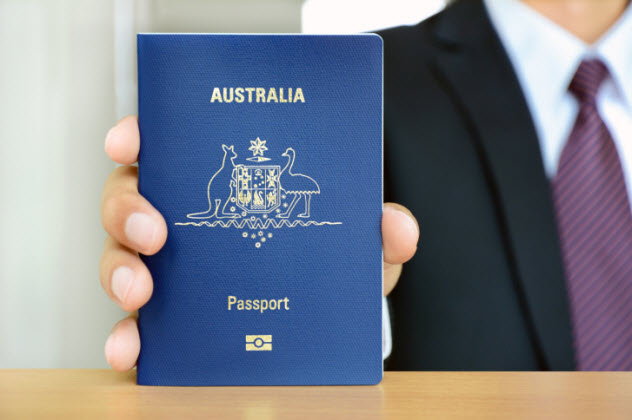
In 2010, an international scandal erupted when it was discovered that Mossad had used three forged Australian passports to enter Dubai and assassinate Hamas leader Mahmoud al-Mabhouh. Former Mossad case officer Victor Ostrovsky told ABC radio that it was a common practice: “You can tell whatever stories you want. It doesn’t take much of an accent to be an Australian or New Zealander, or an Englishman for that matter. And I know people had been under Australian cover not once [but] quite a few times. So why not use it [again]?”
Australia warned Israel that such behavior would compromise good relations between the countries. Britain, Ireland, France, and Germany were also furious that people linked to the assassination had been carrying travel documents from their countries.
According to Ostrovsky, Mossad spends a great deal of money on a research department that falsifies travel documents, with factories churning out these documents based on blank or stolen passports from Western countries. This allows Mossad agents to remain undetected in Arab countries where an Israeli passport would attract scrutiny.
Mossad denies Ostrovsky’s claims, although that’s hardly surprising. In 2011, a related scandal emerged. Ostrovsky warned six British-Israeli dual citizens who had their UK passports stolen and used by Mossad that they shouldn’t leave their homes or travel abroad because Hamas might target them, either accidentally or to send a message.
7 Operation Plumbat
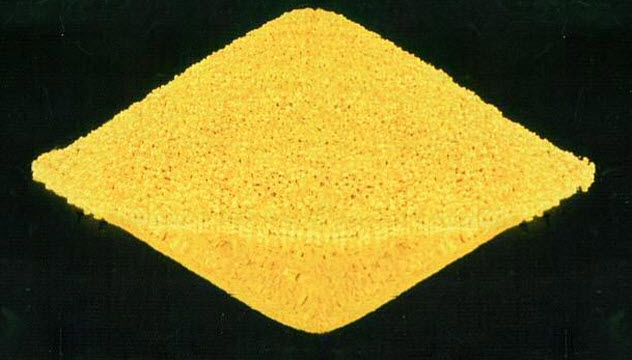
Together with the alleged NUMEC theft, Israel’s nuclear program was bolstered by Mossad’s nuclear piracy operations, both real and faked. In the most notorious incident, Mossad set up a Liberian front company to purchase a tramp ocean freighter which they renamed the Scheersberg A.
Then they enlisted a West German official at a petrochemical company to help them purchase $3.7 million of yellowcake from the Belgian company Union Miniere, which had mined the uranium several years earlier in Shinkolobwe in the Congo and was looking to get rid of it.
A contract was set up to have the shipment delivered to an Italian paint company for processing. In November 1968, the Scheersberg A was sent to Antwerp where the uranium was placed in barrels labeled “Plumbat,” referring to a harmless lead product. The Spanish crew of the ship was fired and replaced with Mossad agents with forged passports.
The ship was ostensibly headed to Genoa, but it never arrived. Instead, the ship rendezvoused with an Israeli freighter and two gunboats off the coast of Crete. The uranium was transferred to the waiting ships and taken to Haifa. Then the Scheersberg A went to Turkey, docking with no cargo and several pages ripped from its log. The Italian company was told to cancel their order as the cargo had disappeared without explanation, which they assumed meant piracy or hijacking. It wasn’t until the 1970s that the truth was revealed.
According to Rolling Stone and other sources, Mossad also engaged in nuclear piracy and theft aimed at Western powers. However, two operations occurred with the cooperation of the French and West German governments.
In one 1968 incident, a commando unit used tear gas to subdue the driver of a French truck transporting uranium. The material was smuggled to military bases in Negev, a desert region in Israel. Meanwhile, an inquiry in the US found that at least 1 ton of uranium and plutonium had gone missing between the 1950s and 1970s, including a significant amount from a plant in Irvine, Tennessee.
6 Mordechai Vanunu’s Honeytrap
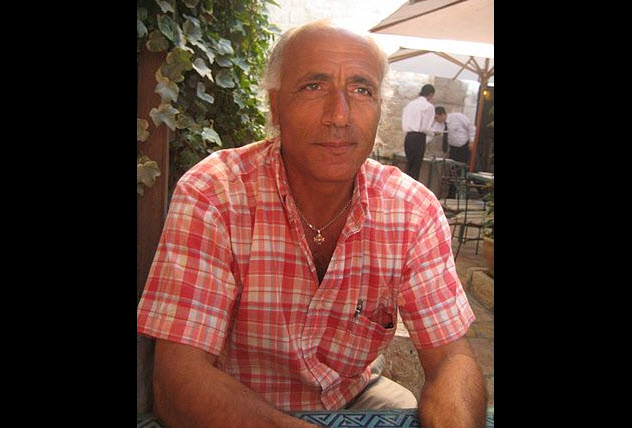
Whistleblower scientist Mordechai Vanunu, a disgruntled technician at the Dimona nuclear complex, planned to release information on Israel’s nuclear program to British newspaper The Sunday Times. Placed in a safe house, Vanunu was told to be careful. But he ran afoul of Mossad agent Cheryl Hanin, who claimed to be an American tourist named “Cindy.”
To his credit, Vanunu asked if she was a Mossad agent, but she feigned ignorance of the organization. Vanunu would later explain: “It wasn’t in a bar, it was in the street. I was crossing the road and this woman was crossing the road and we began to talk. [ . . . ] I didn’t fall in love with her, but I thought things could continue. Initially, I told her she was a Mossad agent, but afterward, I forgot about it.”
He fell for her, but she refused to sleep with him in London, telling him that they should do it at her sister’s place in Rome. He went with her to Italy, where he was arrested by Mossad and placed on a freighter bound for Israel. Vanunu spent 18 years behind bars.
Initially, he believed that “Cindy” was also a victim until he finally realized the truth about three days into his slow sea journey to imprisonment. Newspaper executives blamed the success of the trap on Vanunu’s sexual status as a 31-old-virgin who was “desperate to get laid.”
5 Lillehammer
Following the brutal attack on Israeli athletes at the 1972 Munich Olympic Games by the terrorist group Black September, Mossad was gunning for revenge. They initiated “Operation Wrath of God” in retaliation, beginning with the shooting of Palestinian translator Wael Zwaiter in Rome and the car bombing of Mahmoud Hamshari, alleged head of Black September, in Paris.
Operation Wrath of God had a flavor of righteous retribution, although some people claim that Zwaiter had no links to the terrorist organization or the attacks. But things really took a turn south with the murder of Ahmed Bouchiki, a Moroccan waiter in Lillehammer, Norway.
Mossad had received information that Ali Hassan Salameh, the mastermind of the Munich attacks, was in Norway. This was actually counterintelligence sent by Salameh to throw the Israelis off his trail. Mossad tracked down the man they believed to be Salameh, but it was really Bouchiki, who had an unfortunate facial resemblance to Salameh.
Mossad team leader Mike Harari was inexperienced and overconfident. The final misidentification of Bouchiki as Salameh was made by Kemal Benamane, an Algerian who worked as a courier for Black September until he became a double agent for Mossad.
Bouchiki was shot dead as he walked home from work, but things quickly spiraled out of control. Lillehammer hadn’t seen a murder in 40 years. The arrival of a dozen foreigners in the sleepy town had already been noticed by residents and the police, so officers were nearby when Bouchiki was killed.
While Harari and some of the team escaped, six operatives were arrested by Norwegian police and put on trial for murder. During the trial, the agents made full confessions that revealed embarrassing details about Mossad’s clandestine activities and assassination methods. In the aftermath, Mossad abandoned its entire European network of safe houses, drop boxes, and secret phone numbers.
4 Salameh Project
Five years after the Lillehammer disaster, Mossad once again decided to pursue Ali Hassan Salameh. However, the Israelis didn’t know that Salameh had become a CIA asset in the intervening years. The CIA hoped to use his status and connections in various PLO organizations to prevent attacks on Americans.
Allegedly, this arrangement had many benefits for the Americans, including saving the life of Secretary of State Henry Kissinger. Salameh refused to take money for his services, insisting that he only wanted to promote better relations between the Americans and the Palestinians. But he did allow the CIA to pay for his expensive honeymoon with his Hungarian-Lebanese bride (and 1971 “Miss Universe”) Georgina Rizk.
Mossad did ask the CIA about their relationship with Salameh. To allay Israel’s suspicions, the CIA staunchly denied having any relationship with the terrorist, so Mossad assumed they were good to go. In 1978, operative Erika Chambers was sent to Beirut to look for Salameh. She pretended to be an eccentric English spinster working at a charity that took care of Palestinian children.
Soon, other Mossad agents located the terrorist and learned his routine. After marrying Rizk, Salameh had gotten into a pattern of regularly traveling between PLO headquarters, the home of his first wife and two children, and Rizk’s apartment.
The Israelis rented a Volkswagen, loaded it with explosives, and parked it on one of Salameh’s usual travel routes. As Salameh’s Chevrolet passed the Volkswagen, the explosives were set off by radio transmitter. Nine people perished in the blast, along with Salameh and his bodyguards who were following in a Land Rover.
One eyewitness described the scene: “It was like hell. There was a flash, then a big bang. It was incredible. I’d never seen anything like it before, not even in Beirut. It was as if the whole city was on fire. So many dead people, burned cars, and young bodies littering the street. Then I saw Hassan Salameh getting out of a car and falling on the ground. The people told me who he was.”
3 Beirut Bombing
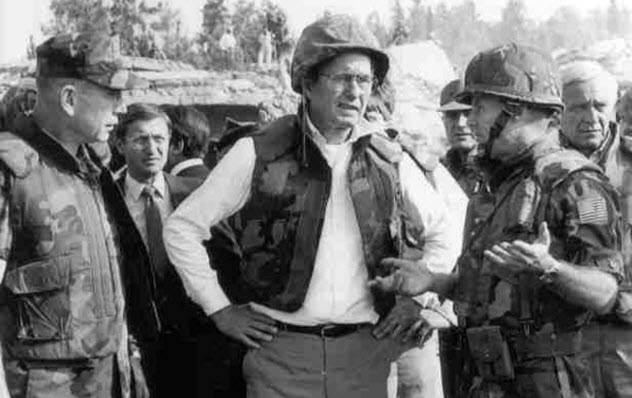
In 1983, over 240 American servicemen were killed at the US Marine barracks in Beirut in a truck bomb attack by a radical Shia terrorist group. According to former Mossad case officer Victor Ostrovsky, Mossad had specific details from an informant that Hezbollah was loading a truck with explosives for the attack, but Mossad director Nahum Admoni deliberately withheld the information from American intelligence.
The Israelis may have hoped that such an attack would irrevocably damage US-Arab relations. Supposedly, Admoni told his men: “We are not here to defend the Americans. They’re a big country. Just send them the normal information.” This referred to the regular Mossad messages of potential danger from Lebanon that were likely ignored. On the other hand, security at the base was extremely lax, and constant warnings with no attacks had made the US forces complacent.
Ostrovsky’s account seemed to be credible because he had in-depth knowledge of Mossad personnel names, codes, and secure locations. Paradoxically, the Israeli government sparked more interest in his book By Way of Deception by trying to have it banned.
However, questions remain about the true reasons for his departure from Mossad. Ostrovsky said that he was made a scapegoat in an intelligence failure that embarrassed the Israelis, but he may just be a resentful former employee. He also lost credibility for his lurid and unlikely claims, such as the Mossad training facility at Glilot hosting orgies involving female Israeli soldiers.
2 Mehdi Ben-Barka
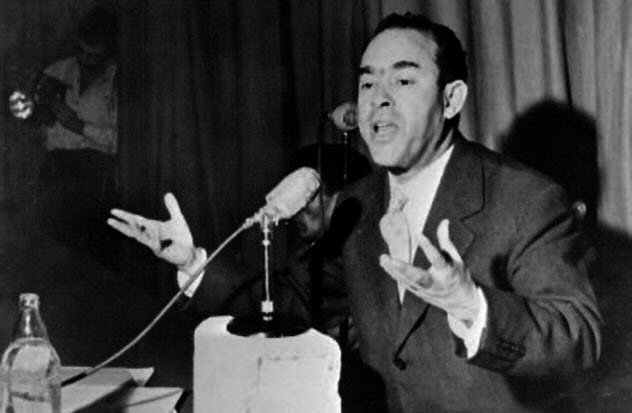
Once the tutor of Morocco’s King Hassan, Mehdi Ben-Barka turned against the government in the 1950s, becoming a prominent third-world political figure known around the world as the founder of the Moroccan Socialist Party. Though Ben-Barka lived in exile in Geneva, King Hassan decided to eliminate him.
Hassan assigned the task to his interior minister General Muhammad Oufkir, who was close friends with Mossad director Meir Amit. Oufkir asked Amit for assistance in the assassination. Amit agreed, hoping to prevent a rift with Morocco that might endanger Jews living in that country. Israel also wanted to cultivate the distant, pro-Western Arab country as an ally and source of intelligence.
Mossad’s role was to locate Ben-Barka and then set a trap for him. They discovered that he had subscriptions to a number of foreign magazines delivered to a kiosk in Geneva. Occasionally, Ben-Barka went to pick up the magazines personally. Mossad gave the Moroccans the address.
But Morocco wanted more. Mossad was asked to provide the Moroccan agents with a Paris safe house, camouflage, makeup, and fake passports. Morocco also wanted Mossad to follow the target.
But Ben-Barka had connections with Mossad and admired Israel, which made Mossad and the Israeli government reluctant to get so involved. They considered stalling or even warning Ben-Barka about the imminent attack. But the Moroccans moved ahead with the operation and pressured Mossad into providing security for Moroccan intelligence operative Ahmad Dlimi in Paris.
Ben-Barka was lured to a cafe for a meeting with a French journalist, which was actually a Moroccan trap dreamed up by Mossad. Ben-Barka was intercepted by mercenaries from French intelligence who had been recruited by the Moroccans.
He was taken to an apartment and tortured for hours until the Moroccans accidentally drowned him in a bathtub. According to recent research by Israeli journalists, Dlimi then called Mossad in a panic. Mossad sent a team to help bury the body and sprinkle the area with a chemical powder designed to react with water and consume the remains. Heavy rain fell soon afterward.
1 Khaled Mashal
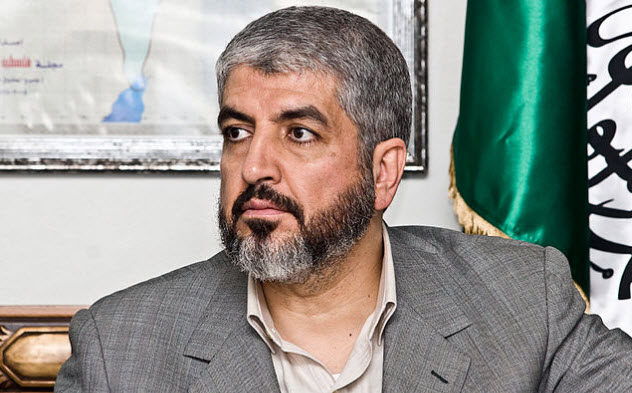
Despite a new peace agreement between Israel and Jordan at the time, members of the Kidon Unit of Mossad arrived in Jordan in September 1997 to assassinate Hamas leader Khaled Mashal. This was in retaliation for a Hamas attack on a Jerusalem market in July, where two suicide bombers killed 16 Israelis and wounded 169 others. Newly elected Benjamin Netanyahu wanted the operation to be covert, so a Mossad scientist suggested the use of a new poison that would kill on contact but remain undetectable in an autopsy.
The Mossad agents posed as tourists in Amman, with operatives Barry Beads and Sean Kendall carrying forged Canadian passports. They planned to wait for Mashal to arrive in his SUV and then poison him as he walked toward his house in the Shamiah Center. The agents intended to open a shaken can of Coke, distract Mashal with the exploding cola, spray his neck with the poison from an aerosol can, and then flee the crowded scene in a getaway car.
However, as the assassins approached Mashal, his daughter jumped out of the SUV. Immediately, both Mashal and the SUV driver chased after her. The team leader tried to signal Beads and Kendall to abort the mission, but they didn’t see him. When they got close to Mashal, Kendall opened the can of Coke, but nothing came out. Beads tried to spray Mashal anyway, but the driver saw the attack and hit Beads with a newspaper. Beads only got a couple of drops of poison on Mashal’s ear before Mashal ran away.
In more bungled getaway action, Beads and Kendall were eventually arrested by Jordanian police. When the truth came out, there was an immediate uproar over the assassination attempt, causing massive embarrassment for both the Israeli and Jordanian governments that strained their relations. King Hussein threatened to jail the Mossad agents unless Netanyahu coughed up the antidote to the poison, which he did.
In the end, Israel was forced to release imprisoned Hamas leader Sheikh Ahmed Yassin in return for the release of Beads and Kendall, who were delivered to the Canadian embassy before returning to Israel. Even the Canadians were angry because they didn’t appreciate Mossad agents using forged Canadian passports.
David Tormsen’s passport is in too tattered a condition to be of any use to Mossad. Email him at [email protected].



